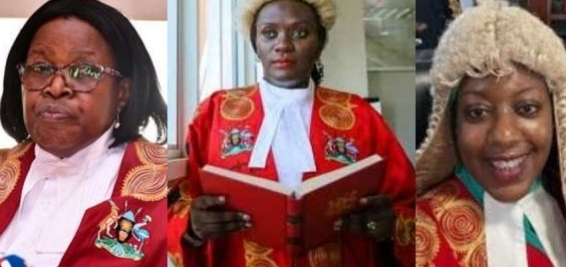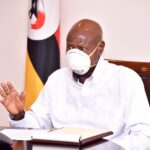The Ugandan judiciary has refrained from making any definitive statements about the future of three female judges entangled in separate controversies, leaving the public and legal community speculating about their fate.
Among them is Justice Esther Kisaakye of the Supreme Court, whose situation has sparked significant public concern. Kisaakye reportedly left Uganda, citing threats to her safety, following her dissenting opinion in the 2021 presidential election petition filed by opposition leader Robert Kyagulanyi, also known as Bobi Wine. The petition contested the re-election of President Yoweri Museveni. Lawyers representing Kisaakye allege that her dissent made her a target of intimidation, but judiciary officials have yet to confirm her status or her current location.
High Court Judge Lydia Mugambe faces a different kind of legal trouble overseas. She was arrested in the United Kingdom and charged in connection with a modern slavery case. Mugambe is accused of orchestrating the travel of a domestic worker for the purpose of forced labor, a violation of UK immigration laws. Following her arrest in August 2024, she was formally charged, and her trial is set to begin in February 2025.
Closer to home, another High Court judge, Faridah Bukirwa, has been directed to vacate her position. According to Principal Judge Dr. Flavian Zeija, her judicial appointment remains unconfirmed, effectively invalidating her role. The Judicial Service Commission (JSC) reportedly recommended against renewing her contract, though the specific reasons remain undisclosed.
During a press briefing, Pius Bigirimana, the judiciary’s permanent secretary, deflected most inquiries about the judges. Regarding Kisaakye, Bigirimana suggested that questions about her employment and salary status should be directed to Chief Justice Alfonse Owiny-Dollo. He admitted to having no evidence of Kisaakye’s current whereabouts, adding, “I don’t supervise judges. Matters like these are the responsibility of the Chief Justice.”
In July 2022, Bigirimana reportedly wrote to Kisaakye demanding an explanation for her prolonged absence, threatening to recover salaries paid during that period. However, no subsequent action has been confirmed.
On Judge Bukirwa, Bigirimana noted that her contract issues fell under the jurisdiction of the JSC and declined to elaborate further. Similarly, when questioned about whether the judiciary continues to pay all three judges, he stated that no instructions to halt payments had been issued by his superiors.
Public skepticism has grown over the judiciary’s reluctance to address these high-profile matters. While Bigirimana insists his role is purely administrative, calls for transparency and accountability within the judiciary continue to mount. (urn)
![]()
























